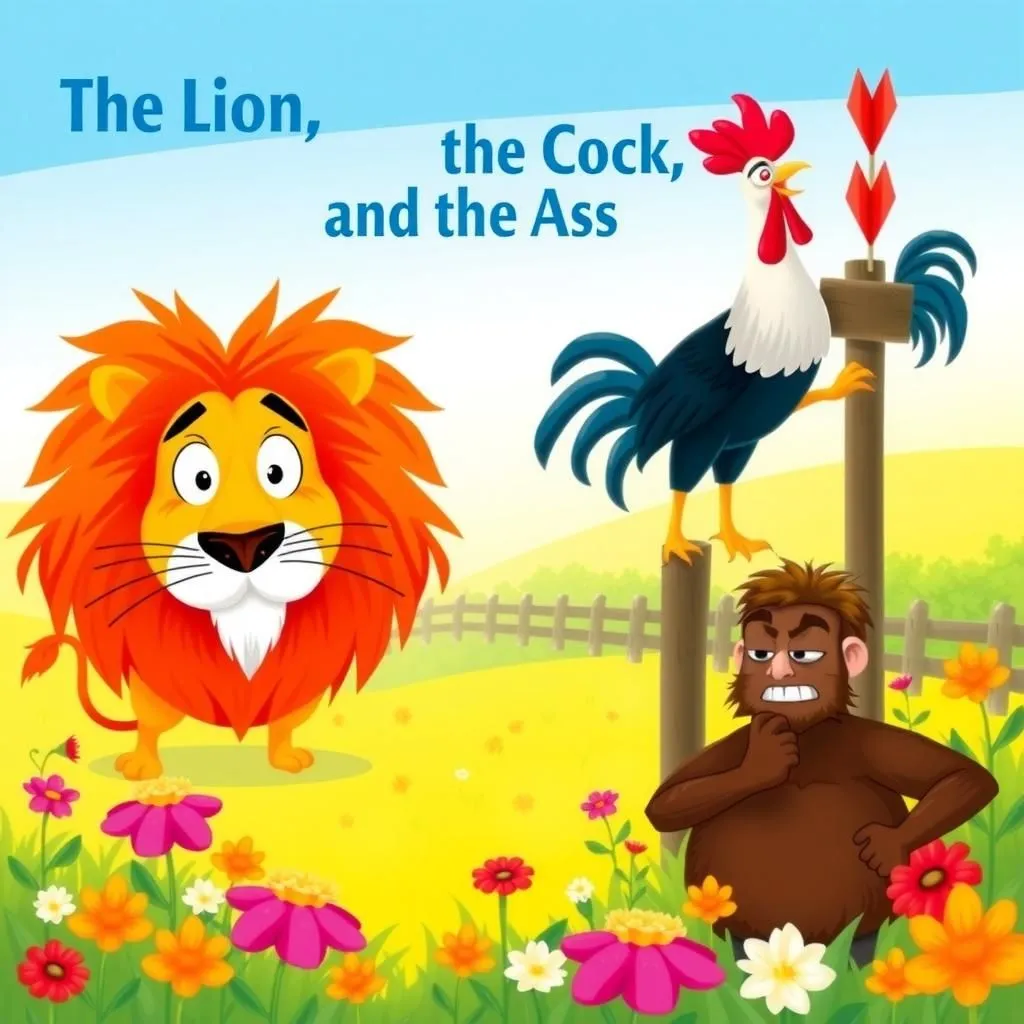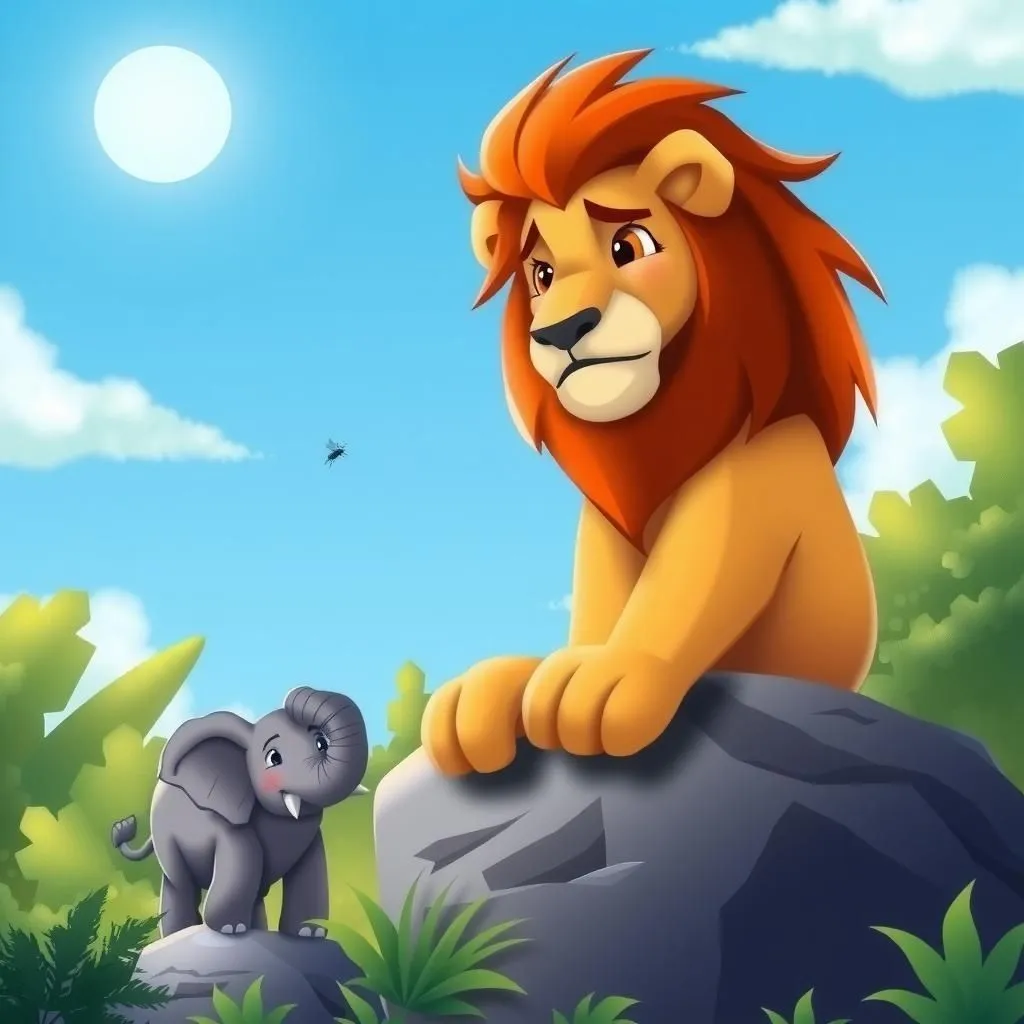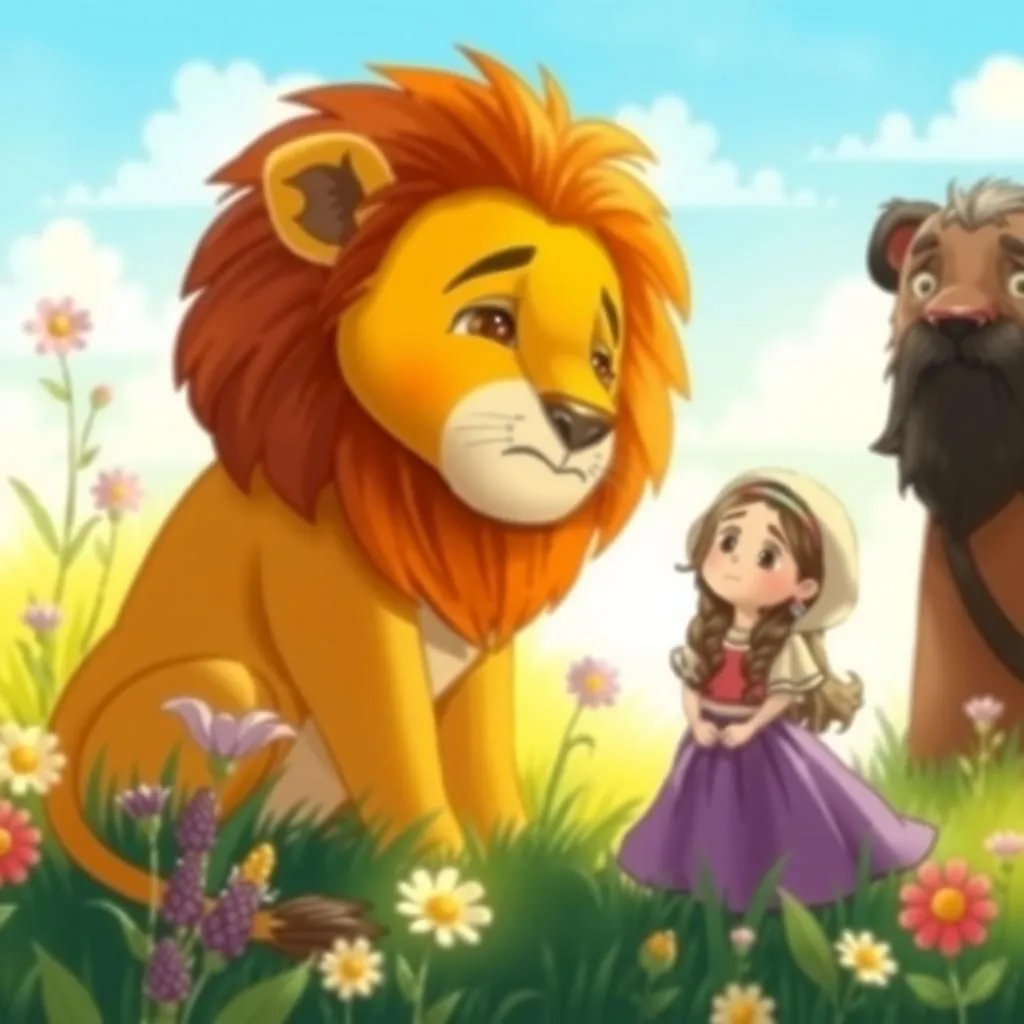
The Lion, the Cock, and the Ass
In "The Lion, the Cock, and the Ass," a Lion is startled away from attacking an Ass by the proud crowing of a Cock, who claims his voice instills fear in the mighty beast. The Ass, however, humorously questions the Lion's peculiar fear of the Cock while disregarding the braying of the Ass, highlighting the thought-provoking moral that true strength lies not in appearances but in the wisdom to discern simple lessons from stories. This timeless tale serves as one of many moral stories for kids, encouraging them to reflect on the nature of fear and bravado.


